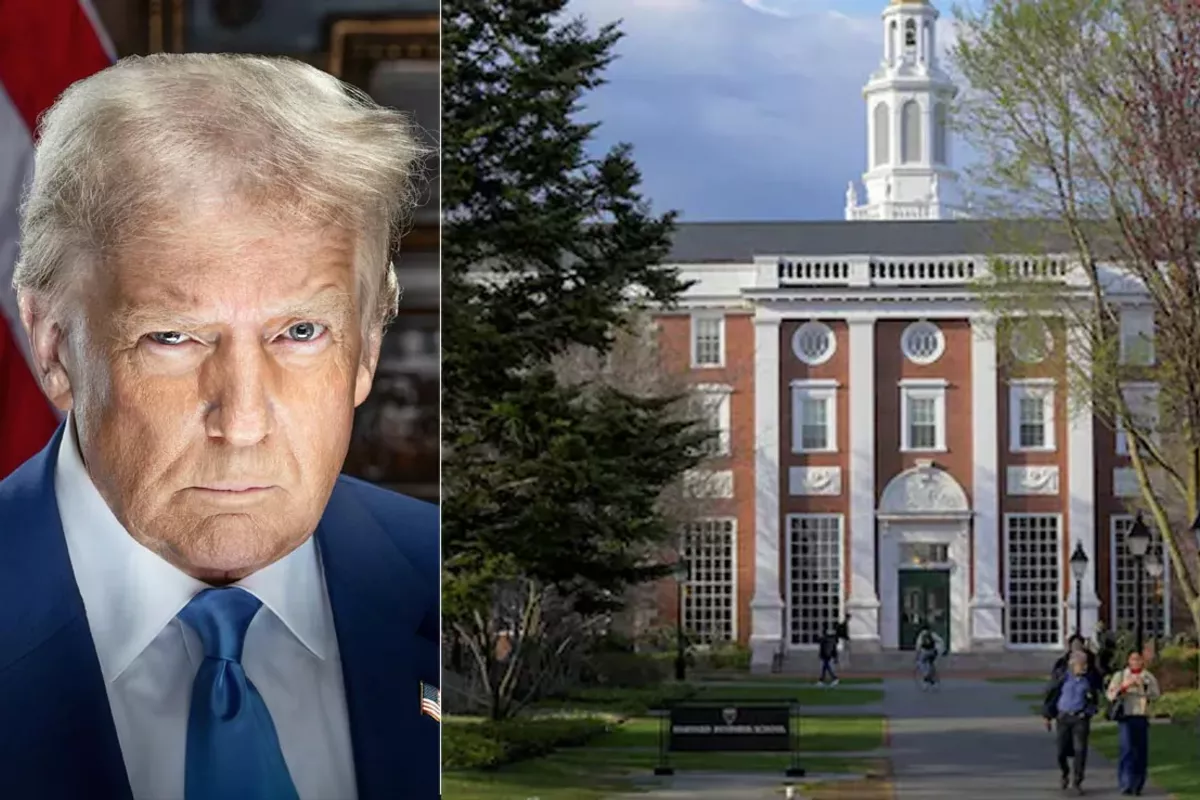
The situation for Central Asian students studying in the United States has become increasingly uncertain following a controversial decision by the Trump administration to limit foreign student admissions at Harvard University, prompting legal challenges and diplomatic responses, The Caspian Post reports citing The Times of Central Asia.
Administrative Ban Targets Foreign Students
On May 23, U.S. Secretary of Homeland Security Kirstjen Nielsen ordered the termination of Harvard University’s certification for its student and exchange visitor program. The Department of Homeland Security (DHS) cited Harvard’s alleged refusal to submit records on the conduct of its foreign students, requested the previous month.
“Harvard can no longer accept foreign students, and existing foreign students must transfer or lose their legal status,” the DHS said in a statement. The university is currently challenging the decision in court.
The administration attributes the crackdown to ideological concerns. Officials have cited a determination to confront anti-Semitic rhetoric amid campus protests related to the war between Israel and Hamas. They also oppose Diversity, Equity, and Inclusion (DEI) initiatives, which the administration has condemned as “illegal and immoral discrimination.”
Harvard representatives reported that 6,793 international students were enrolled in the 2024-2025 academic year, comprising 27.2% of the student body. The loss of international students, they argue, could jeopardize not only Harvard’s standing but also the broader U.S. academic landscape.
Beyond Harvard, the administration has intensified scrutiny of foreign students’ social media activity, suspended hundreds of millions of dollars in funding to universities, revoked thousands of student visas, and initiated deportations. In response, Harvard filed a lawsuit, and on May 30, a federal court in Boston temporarily blocked the enforcement of the ban, according to Bloomberg. Nonetheless, the outlook remains uncertain.
Kazakhstan Responds with Contingency Planning
According to Kazakhstan’s Ministry of Science and Higher Education, seven students are currently studying at Harvard under the state-funded Bolashak program. Additional students may be enrolled privately or through other sponsorships.
Minister of Science and Higher Education Sayasat Nurbek described the situation as “difficult” and stated that the ministry is awaiting the final court decision. In the event of an unfavorable outcome, Bolashak students would be offered transfer opportunities to other Ivy League institutions, all of which maintain partnerships with the scholarship program.
Bolashak Program: Opportunity and Criticism
Founded in 1993, the Bolashak (Future) program offers state-funded scholarships for international education in priority sectors of Kazakhstan’s economy. In return, graduates are required to work in Kazakhstan for a specified period.
Despite its aims, the program has faced criticism for alleged elitism. Critics claim it disproportionately benefits children of influential families and that many graduates fail to fulfill their service obligations or remain abroad. Among its alumni is former Minister of National Economy Kuandyk Bishimbayev, who was educated in the U.S. under Bolashak and later served as chairman of the Bolashak Association. He was subsequently convicted twice, first for corruption, and later for the murder of his common-law wife, Saltanat Nukenova, in a case that attracted international attention.
Nevertheless, official statistics indicate that more than 13,000 individuals have benefited from the program, with over 10,000 fulfilling their contractual commitments.
Central Asia’s Student Diaspora Expands
While Central Asian nations are not major contributors to the international student population in the U.S., numbers have been steadily rising. In 2024, Kazakhstan ranked ninth globally in the number of students studying abroad, with 91,200 students, most in Russia, though more than a thousand are in the U.S., the U.K., and the EU.
Uzbekistan also saw growth, with 109,000 students studying abroad in 2024. Over 1,000 Uzbekistani students were enrolled in U.S. institutions during the 2022-2023 academic year, a 72.6% increase over the previous year.
Kyrgyzstan’s Ministry of Foreign Affairs reported that as of January 2025, more than 20,000 Kyrgyz citizens were studying abroad, including 1,173 in the U.S., with most enrolled in institutions in Russia and China.
Share on social media